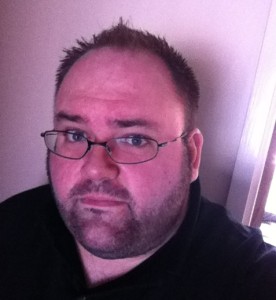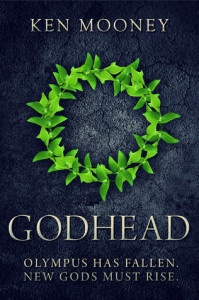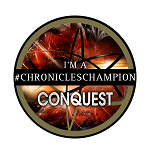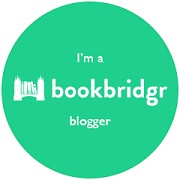Today talking about publishing is author of GodHead – Ken Mooney.
If I went looking hard enough, I could probably find some of the first things that I wrote. A school copybook here, a discarded Word document there.
Looking back, I’m embarrassed to admit that some of those stories were ‘fan-fiction,’ or that’s what we’d call them these days. X-Men, Power Rangers, even the Stargate movie got a look in. I grew out of it by the time I hit 12, but it was too late: the damage was done.
Even to this day, I still pay more attention than I should to bright spandex-wearing evil-fighting teenagers and sci-fi takes on mythology: if you’ve read my work, you can possibly even see that right there on the page.
I enjoyed writing, and in my head, it was something I’d get to do later in life.
As I grew older, I didn’t think that would ever happen though: perhaps it’s something to do with the Irish mentality. I got compliments, I got encouraged, but I never really had the confidence to put my work forward. And I think I’ve figured out why.
Back then, in the late 90s and early 00s, social media hadn’t really taken off. Sure, there were forums and communities where you could put yourself out there, but to a teenager, these were more about finding people with similar taste in music – music that had been totally legally acquired too!
At a time when you’re doing exams and talking about your future, creative options weren’t really on the cards: I’m sure if I’d had the balls to ask, I’d have gotten answers, but ‘writer’ didn’t really link up with ‘career’ and ‘bills’ for me. Back then, I saw writing as this difficult mountain to scale, a career where you really had to find your own path. The most visible writers were those at the top of their game, and that was a height I could never reach: there was no real sense of scale, no fledgling authors who weren’t ‘the next big thing’ (although if I’m honest, just having a book out automatically made them a big thing. )
For the next few years, I toyed with writing, but it wasn’t important to me: it was a hobby, a passing interest. I wasn’t really committed, but when I went back to look at the silly little things I’d written as a teenager, I found stories, elements and characters that were all my own. I had dismissed them once upon a time as fanciful indulgences, but these elements still had roots in my brain, and it didn’t take long for them to make themselves known once more. Separated from the worlds that I thought had inspired them, they began to grow and take on lives of their own. And now, with something posing as maturity and confidence, I set out to develop these stories and find where they would lead me.
They didn’t really lead me anywhere. I started writing the same book three different times and got lost around the second act. And I didn’t really have anything to motivate me to push my way through. I set myself deadlines, but here’s the thing about those: there’s no punishment when you don’t meet them (and let’s be honest, that smug sense of self-satisfaction doesn’t really count as a reward either.)
Motivation arrived a couple of years later, and I didn’t realise that it could grow in such a way. In 2009, both of my grandfathers passed away within a month of each other, both in similar circumstances. They’d both been key figures in my upbringing: the time I’d spent in both their houses as a kid had been reading and writing and generally being creative. A few years later, I still wasn’t sure how to deal with their loss, and that there was only really one way of finding out: when I wrote I felt free, unhindered by all the woes of the world. So what if I used that approach to exorcise my own demons?
It was too raw to talk about it in the first person, so I picked one of the characters I’d come up with years before and made her go through the same thing. She was kind of like me in personality and temperament, and in the relationship I created with her grandfather. And sitting there on my laptop, spying on her in the hospital room as she cried and mourned, I realised that this wasn’t my grief any longer. I’d transformed it into something else, and when I asked some friends to read it, they knew where it came from. They gave me the same compliments and encouragement that I’d heard years before, but now I saw what they meant. I felt like I had actually produced something to be proud of and that meant something to me. This scene, meant to be an appendix that would exist only in my head, became a pivotal part of this character: I couldn’t tell her story without reference to this moment.
With that in mind, I decided I was creating something, and nothing was going to stand in my way. The old stories came flooding back, reminding me of characters and situations that I now understood in a completely different way.
To keep myself motivated, I attended a course, a once-off evening at a writers’ centre here in Dublin: Getting Published. It was the first time I’d properly spoken to someone who had published a book; it was the first time I’d sat in a room with other people who wanted to publish books. It was the first time I’d done a lot of things.
I was sort of shocked to find out that those people had the same issues as me: confidence, motivation, deadlines. Some of them had even been rejected by publishers. They were a hell of a lot further up that mountain than I ever hoped to be.
Suddenly, I had practical advice and guidance for every element of publishing that you could fit into a three hour workshop, from submitting to agents to keeping yourself on target.
And it was the first time that self-publishing was presented as a viable and respectable alternative to traditional publishing. Up until then, self-publishing was a dirty exercise in vanity: to be fair, the only stories I’d heard were about vanity press who charged several thousand quid to publish the ten copies of your book for you, your friends and family.
I decided to work on this novel once more, putting my head down until I had the bare bones of a story. And I submitted it to an agent. And she wanted to read more.
Ultimately, that agent wasn’t interested in the book, but she gave me feedback: this time the encouragement and compliments came from someone I didn’t know, that I didn’t suspect of just being nice to me because they knew me. It didn’t really matter that the book wasn’t picked up: before I’d even heard back from her, I’d already started on a dramatically different second draft. And what’s more: I had the luxury of being able to do so.
When I found out about the Authonomy website, it seemed like the perfect place to give this second draft an outing. What’s more, I was connecting directly with people who were on the same page as I was: my work was getting some great feedback, and we were all able to help and learn from each other.
Draft after draft, the story that I had written came closer to a novel: it was no longer just a story, but it was becoming Godhead, my first novel. I submitted it to three further agents: eighteen months later, I’ve still only heard back from one of them.
So what drove me to stop querying agents and start thinking about self-publishing? Honestly?
It was all about frustration, not about rejection: I was more frustrated at the very act of trying to submit. Godhead was a genre book, but it wasn’t a straight genre: the manuscript was hovering around 200 pages of print, and that was just in single-line spacing. My frustrations arose from researching agents who outright said they would not read genre fiction; from agents who insisted on being mailed a physical copy of the manuscript that would have taken me hours to print and cost a small fortune to send.
And above all else, I had invested in this story: I wasn’t changing it for anyone else, and I didn’t want to share.
Once I decided to self-publish, the idea just kept gathering momentum: self-publishing in itself was the goal, and the only thing stopping me from achieving it was…well, me.
My first stop on the journey was a book cover: I knew plenty of friends I could ask, but I knew it needed to stand apart. I commissioned a cover and the guys at Design For Writers helped to build an amazing brief which challenged by own thoughts on the book and made me more confident about it. And when the cover arrived in my inbox: well then it hit me. This was really happening.
Godhead got multiple edits, little things changed, big things stayed the same. And then, sitting at home one bank holiday Monday, I decided it was time to push the button and just let it out into the world. And it was that easy.
After publishing, I found out a few home truths about writers too: they’re just regular people too. Turns out a lot of people I’d connected with on Authonomy had taken the same steps and self-published their own books around the same time. We were on the journey together, and we were able to continue giving each other advice and support. And now that social media existed, now that I had some confidence, I found myself interacting with other writers and editors, with people whom I was previously in awe of. And they too…they were normal and human. The unattainable height didn’t seem quite so high any longer.
That’s when things got interesting and I realised that the path I was walking was bringing me in some very unusual directions.
I was working on the sequel to Godhead when a friend approached me about something different entirely: a query involving my day job. I was glad to help, but a passing comment opened a door that I hadn’t even noticed. He worked in publishing, local history, something I didn’t really have any experience in. And he thought I’d be the perfect candidate to write a book that they wanted to publish, all about the end of the world.
This wasn’t even fiction: it was more academic, something I’d never have considered doing on my own and, I’ll be honest, something I was terrified to even try. I’m still not sure what really happened either: it was a fun couple of weeks of building a pitch, doing some research, but I didn’t expect anything to come of it. I spoke about my experiences of self-publishing, about what I had done and about what I wish I had done differently. And when this went to for approval at the publishers, they liked what I had to say.
Next thing I knew, I was researching and writing a book about the end of the world, thrown in at the deep end of the publishing industry in a way I never thought would happen.
There were some big differences between self-publishing and this sort of writing, and I learned a few things that I’m able to take back when I want to self-publish my next book. Deadlines, collaboration, deadlines, more deadlines: it’s a good, disciplined approach that I didn’t bring to my work beforehand, but when someone else is expecting to see a book on their desk, on a specific date, it’s hard to disappoint.
They both have their benefits, and they both have their downsides: but until I climb to the top of the mountain and I get the six figure deal that doesn’t really exist, I’m prepared to have the best of both worlds.
Thank you Ken!
You can follow Ken on Twitter here: https://twitter.com/kenmooney
Purchase Information: http://www.amazon.co.uk/Ken-Mooney/e/B00BW49AKO/ref=sr_tc_2_0?qid=1391586684&sr=1-2-ent
Happy Reading Folks!







